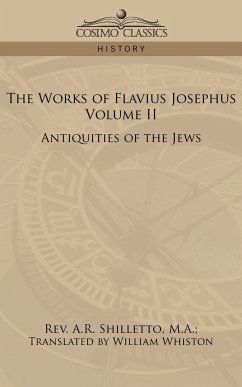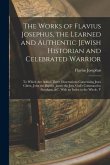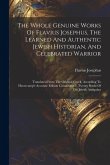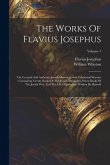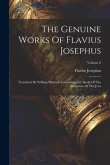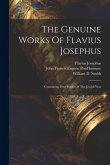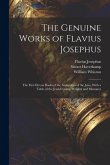This Amon imitated the wicked conduct of his father during his youth, and had a conspiracy made against him by his own servants, and was slain in his own house, when he had lived twenty-four years and reigned two. But the multitude punished those that slew Amon, and buried him with his father, and gave the kingdom to his son Josiah, who was eight years old. -from "Book X, Chapter IV" Considered a traitor and informer by some, his writings possibly Roman propaganda, first-century scholar Josephus is a suspect but still voice in classical history. Containing Josephus's Antiquities of the Jews, Books VII-XIII, the volume covers Jewish history from the death of Saul to the death of Queen Alexandra, and remains a vital early source of Jewish tradition. Though he was captured by the Romans and later became a Roman citizen, casting this work in a questionable light, religious thinkers today still look to this classic 18th-century translation, making it must reading for anyone hoping to appreciate modern Judeo-Christian culture. OF INTEREST TO: readers of ancient history, religious scholars Roman Jewish historian FLAVIUS JOSEPHUS (ca. 37-ca. 100) also wrote the twenty-one volume Antiquities of the Jews. British clergyman and mathematician WILLIAM WHISTON (1667-1752) is the author of the groundbreaking New Theory of the Earth (1696), as a result of which he was named successor to Sir Isaac Newton as Lucasian professor of mathematics at Cambridge.
Hinweis: Dieser Artikel kann nur an eine deutsche Lieferadresse ausgeliefert werden.
Hinweis: Dieser Artikel kann nur an eine deutsche Lieferadresse ausgeliefert werden.

